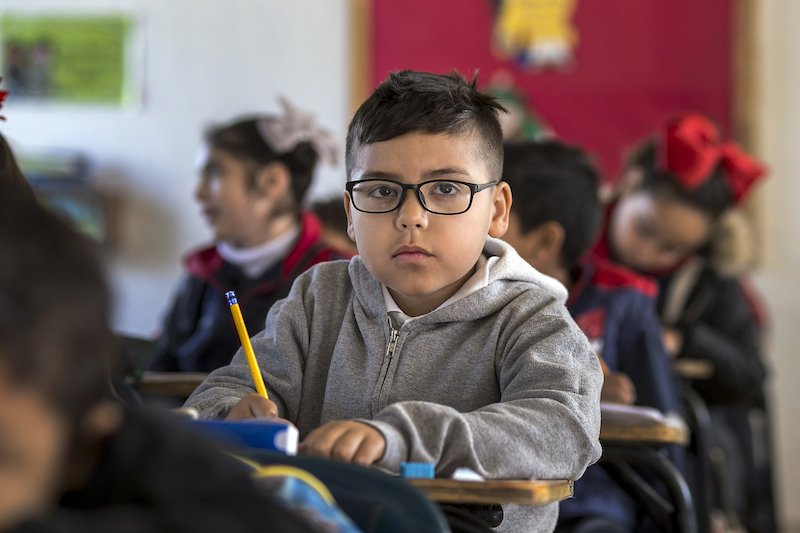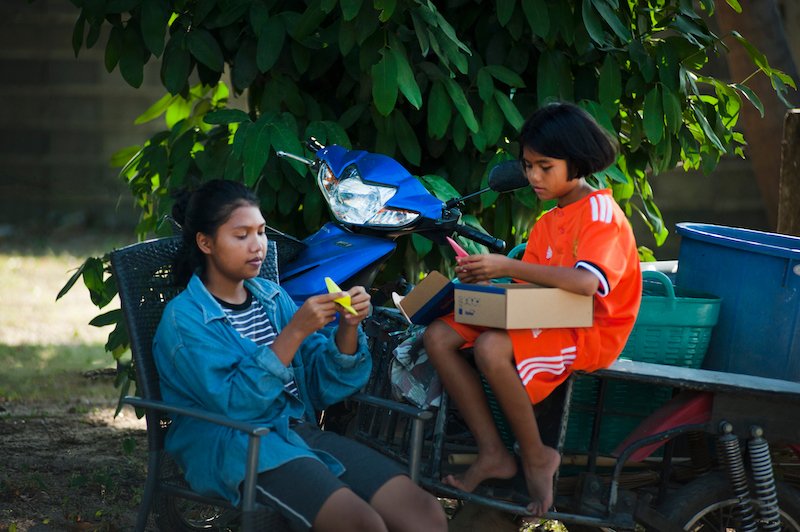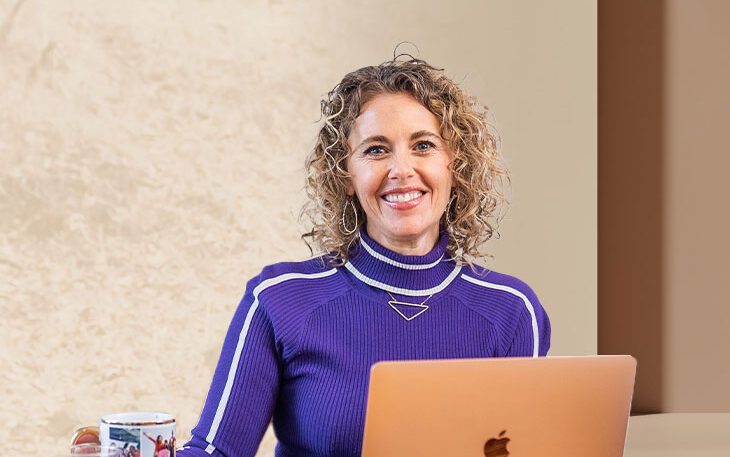De-Schooling Means Thinking Differently
Reimagining education starts with de-schooling. A process often mentioned in homeschooling communities, it’s considered a vital part of the alternative education journey. Whether you intend to send your kids back to school or not when they re-open, the process of de-schooling is still going to be vital to your learning journey at home over the coming months.
What is De-Schooling?
De-schooling is the process of transitioning kids from a highly structured academic environment where their choices are limited and they are moving through a process that they have very little control over to a more holistic learning environment where there can be far less structure and where the end goal is often independent learning and self-directed education.
Does that sound daunting? Deep breaths.
It doesn’t have to be. Remember that kids (humans!) are hardwired to learn and they are far more flexible and resilient than we give them credit for.
De-schooling is a process. On average it takes a month per year that a child has been in school to “de-school” them adequately. For some kids it will take longer, for others, it will take less time. Follow your child’s lead.
Let me tell you a secret: There’s no big secret to de-schooling your kids.
It’s not about the method you’re employing, the curriculum (if any) that you select, or the particular tactics of your family.
The secret to de-schooling lies almost entirely in your head. In the way you think about education. In your philosophy of family, childhood, and education.
Even people who are homeschooling are sometimes doing it in very “schoolish” ways. Often that is a struggle. Now is the perfect time to experiment with de-schooling your kids. It may also help you adjust to the huge changes your family is experiencing by giving you permission to take a breath.
The first step is about changing the way you approach learning as a family…

Traditional vs. Non-Traditional Educational Philosophies
If you’ll allow me to get philosophical for a moment…
A traditional educational philosophy says that:
Students must be actively taught
Experts are the only qualified teachers
Learning happens in a certain place & time
Lessons must be carefully prepared, with objectives & outcomes
Children learn best in homogenous groups
Through worldschooling, you and your children typically come to understand that:
Children can be trusted to learn
Passionate people are the best teachers of their subject matter
Learning is happening everywhere, all the time
The best lessons are often spontaneously generated
Children learn best in broad communities
But how exactly do you get from one philosophy to the other? De-schooling is the first step on that journey!

How to De-School
1. START BY DEFINING WHAT YOU BELIEVE ABOUT EDUCATION
A good exercise for countering the “boxed” educational philosophy that most of us have inherited is to list all of the things you believe about education and the way children learn. The five points I listed above might get you started, but think more deeply and specifically for your family.
What do you believe about education and learning?
Post this where you can see it daily and until acting on it becomes second nature.
2. START THINKING & DOING IT DIFFERENTLY
If de-schooling = thinking differently, then we must begin to not just THINK differently but allow our educational methods to be CHANGED based on what we have come to think about education.
If we believe that children can be trusted to learn, let’s trust them!
Carefully observe your kids this week and record (secretly of course!) what you observe them learning totally on their own! Pay attention in particular to things that don’t immediately appear obvious, such as:
Things they learn around the house – problem solving, measuring, building etc.
Things they learn when they appear to be bored – how they approach boredom as a ‘problem’ to be solved, how they meet their own needs or work to get them met etc.
Things they talk about, that may appear random, but which often give you clues as to what they’re noodling on in their heads.
Then. when you catch your child interested and learning on her own, ENGAGE…
Get down on her level
Show interest
Ask questions
Follow (don’t lead) the discussion
THINK about what you can follow up with later that will communicate to your child that she was heard, noticed, respected in her learning and that you are interested too
Perhaps this will be a book, a movie, a YouTube video, an online resource, a person you can introduce your child to who knows about “the thing,” or perhaps it will just mean bringing up the cool thing over dinner and sharing it with the people you eat with.
De-schooling = thinking differently, kindling natural interest and engaging with your child. It’s about encouraging your children to start paying attention to their own interests instead of being told what to be interested in, and nurturing this process in their own time.
3. ENCOURAGE YOUR KIDS TO IDENTIFY THEIR OWN PATTERNS & RHYTHMS
It is really common when a child first leaves a school environment that they sometimes want to do nothing more than stay in bed for ages, hang out in their room and go to bed really late.
At school, they have spent their time living and learning on an imposed schedule which may or may not support their own natural rhythms and schedules. We each have our own individual circadian (sleep/wake) rhythm – you yourself know whether you feel more productive in the morning or at night, and kids are no different.
A powerful part of the process of de-schooling is encouraging your children to begin to pay more attention to their own natural rhythms again, and work with these. This may take a while and is a good opportunity to practice (even more!) patience.
De-schooling is fundamentally about helping your children cultivate a different kind of independence.
This will serve them well not only while their schools are closed but well into the future too.
4. GIVE YOURSELF PERMISSION TO ADJUST
Worldschooling is a HUGE change. And even families who have been “schoolishly” homeschooling may feel the need to de-school for a bit before finding the next level of what works.
Give yourself the time and permission to adjust. Sometimes just taking the time to acknowledge what a massive change this is – going from one system and approach to another, and unexpectedly too – is the very first step you need to get through with any resemblance of sanity.
It isn’t just about de-schooling your kids, it’s about de-schooling yourself and your family too; everyone’s facing the same huge change and everyone copes differently. Create space for this adjustment and give any wayward behaviour (from kids and adults alike!) a bit more patience and love than you otherwise might.
Use this time to de-school as a time of adjustment. If they (and you) still need structure, give it to them. If they (and you) need flexibility and chilling out time, do it.
You can’t and won’t leap from A to Z without taking the steps in the middle. Use what we homeschoolers have always known is a vital step in the process to help you and your family adjust, and give yourself a break.
Try This:
Even if you’ve been homeschooling or worldschooling for a while, take a look at what is working and what is a struggle. Are there pain points where you’re still trying to do things the “schoolish” way? Could you peel back another layer on the outside the box learning and go deeper? Are there areas where you could trust your kids with their own process a little more?
De-schooling is a vital step that a lot of people skip when they begin worldschooling. And it’s also a good concept to revisit from time to time as your philosophy of education evolves and you gain confidence in yourself and your kids’ ability to learn without fences.

Jenn Sutherland-Miller
Jenn Sutherland-Miller is the project manager for Beyond the Red Tent.
She is also the co-founder of Headstart Homeschooling, a resource for parents who are ready to reimagine education. If you are worried about what school will look like next year, or if you can feel in your soul that it’s time for a change, Headstart Homeschooling will provide the support, encouragement, inspiration, and resources you need to reimagine education, starting now. Want to learn more about Jenn? You can follow her at Jenn.Lately, on Facebook, or Instagram.










